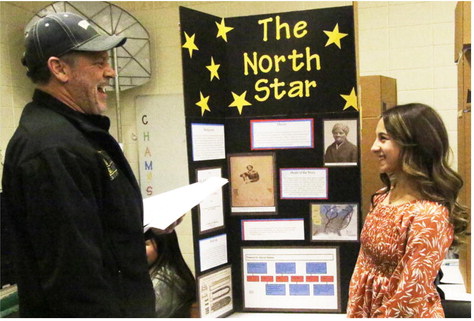“We learned a lot of ….
“We learned a lot of lessons about state capacity during the unwinding,” said Winn Davis, congressional relations director for the National Indian Health Board.
Nevada health officials say they plan to apply lessons learned during the unwinding and launch a public education campaign on the Medicaid changes in the new federal law. “A lot of this will depend on anticipated federal guidance regarding the implementation of those new rules,” said Stacie Weeks, director of the Nevada Health Authority.
Staff at the Fallon Tribal Health Center in Nevada have become authorized representatives for some of their patients. This means that tribal citizens’ Medicaid paperwork is sent to the health center, allowing staff to notify individuals and help them fill it out.
Davis said the unwinding process showed that Native American enrollees are uniquely vulnerable to procedural disenrollment. The new law’s exemption of Native Americans from work requirements and more frequent eligibility checks is the “bare minimum” to ensure unnecessary disenrollments are avoided as part of trust and treaty obligations, Davis said.
Eligibility Checks Are Complex’ and ‘Vulnerable to Error’ The GAO said the process of determining whether individuals are eligible for Medicaid is “complex” and “vulnerable to error” in a 2024 report on the unwinding.
“The resumption of Medicaid eligibility redeterminations on such a large scale further compounded this complexity,” the report said.
It highlighted weaknesses across state systems. By April 2024, federal Medicaid officials had found nearly all states were out of compliance with redetermination requirements, according to the GAO. Eligible people lost their coverage, the accountability office said, highlighting the need to improve federal oversight.
In Texas, for example, federal Medicaid officials found that 100,000 eligible people had been disenrolled due to, for example, the state system’s failure to process their completed renewal forms or miscalculation of the length of women’s postpartum coverage.
Some states were not conducting ex parte renewals, in which a person’s Medicaid coverage is automatically renewed based on existing information available to the state. That reduces the chance that paperwork is sent to the wrong address, because the recipient doesn’t need to complete or return renewal forms.
But poorly conducted ex parte renewals can lead to procedural disenrollments, too. More than 100,000 people in Nevada were disenrolled by September 2023 through the ex parte process. The state had been conducting the ex parte renewals at the household level, rather than by individual beneficiary, resulting in the disenrollment of still-eligible children because their parents were no longer eligible. Ninety-three percent of disenrollments in the state were for procedural reasons — the highest in the nation, according to KFF.
Another issue the federal agency identified was that some state agencies were not giving enrollees the opportunity to submit their renewal paperwork through all means available, including mail, phone, online, and in person.
State agencies also identified challenges they faced during the unwinding, including an unprecedented volume of eligibility redeterminations, insufficient staffing and training, and a lack of response from enrollees who may not have been aware of the unwinding.
Native Americans and Alaska Natives have unique challenges in maintaining their coverage.
Communities in rural parts of the nation experience issues with receiving and sending mail. Some Native Americans on reservations may not have street addresses. Others may not have permanent housing or change addresses frequently. In Alaska, mail service is often disrupted by severe weather. Another issue is the lack of reliable internet service on remote reservations.
Tribal health leaders and patient benefit coordinators said some tribal citizens did not receive their redetermination paperwork or struggled to fill it out and send it back to their state Medicaid agency.
The Aftermath
Although the unwinding is over, many challenges persist.
Tribal health workers in Montana, Oklahoma, and South Dakota said some eligible patients who lost Medicaid during the unwinding had still not been reenrolled as of this spring.
“Even today, we’re still in the trenches of getting individuals that had been disenrolled back onto Medicaid,” said Rachel Arthur, executive director of the Indian Family Health Clinic in Great Falls, Montana, in May.
Arthur said staff at the clinic realized early in the unwinding that their patients were not receiving their redetermination notices in the mail. The clinic is identifying people who fell off Medicaid during the unwinding and helping them fill out applications.
Marlena Farnes, who was a patient benefit coordinator at the Indian Family Health Clinic during the Medicaid unwinding, said she tried for months to help an older patient with a chronic health condition get back on Medicaid. He had completed and returned his paperwork but still received a notice that his coverage had lapsed. After many calls to the state Medicaid office, Farnes said, state officials told her the patient’s application had been lost.
Another patient went to the emergency room multiple times while uninsured, Arthur said.
“I felt like if our patients weren’t helped with follow-up, and that advocacy piece, their applications were not being seen,” Farnes said. She is now the behavioral health director at the clinic.
Montana was one of five states where more than 50 percent of enrollees lost coverage during the unwinding, according to the GAO. The other states are Idaho, Oklahoma, Texas, and Utah. About 68 percent of Montanans who lost coverage were disenrolled for procedural reasons.
In Oklahoma, eligibility redeterminations remain challenging to process, said Yvonne Myers, a Medicaid and Affordable Care Act consultant for Citizen Potawatomi Nation Health Services. That’s causing more frequent coverage lapses, she said.
Myers said she thinks Republican claims of “waste, fraud, and abuse” are overstated.
“I challenge some of them to try to go through an eligibility process,” Myers said. “The way they’re going about it is making it for more hoops to jump through, which ultimately will cause people to fall off.”
The unwinding showed that state systems can struggle to respond quickly to changes in Medicaid, leading to preventable erroneous disenrollments. Individuals were often in the dark about their applications and struggled to reach state offices for answers. Tribal leaders and health experts are raising concerns that those issues will continue and worsen as states implement the requirements of the new law.
Georgia, the only state with an active Medicaid work requirement program, has shown that the changes can be difficult for individuals to navigate and costly for a state to implement. More than 100,000 people have applied for Georgia’s Pathways program, but only about 8,600 were enrolled as of the end of July.
Alker, of Georgetown, said Congress took the wrong lesson from the unwinding in adding more restrictions and red tape.
“It will make unwinding pale in comparison in terms of the number of folks that are going to lose coverage,” Alker said.
This article first appeared on KFF Health News and is republished here under a Creative Commons Attribution- NoDerivatives 4.0 International License.


